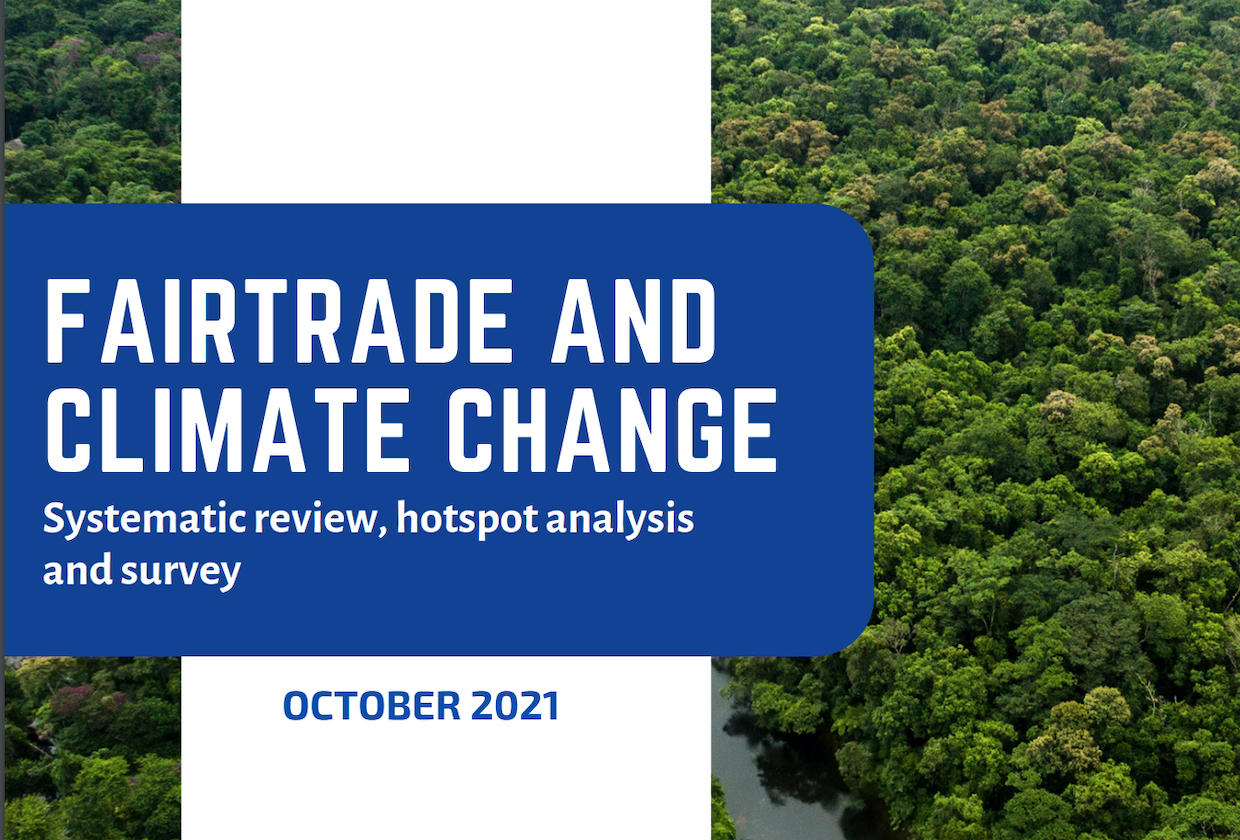A wide-ranging new study from Fairtrade International suggests that intensifying impacts of climate change will present a financial threat to millions of agricultural producers, including coffee farmers, all over the globe.
Released today, ahead of the forthcoming 2021 United Nations Climate Change Conference (COP26) beginning Oct. 31 in Glasgow, Scotland, the report warns of dire financial futures for millions of smallholder farmers in the coming years without intensified support from the private sector.
“The report’s results are extremely alarming and a clarion call for immediate and comprehensive climate action,” Nyagoy Nyong’o, Global CEO at Fairtrade, said in an announcement of the release. “The threat to the future of many supply chains is very real and our planet’s farmers and agricultural workers are on the frontline of this global climate crisis. We must do everything to ensure they are not left behind and that they are indeed a part of the solution.”
Conducted by researchers from VU Amsterdam and Bern University of Applied Sciences and with funding from the European Union, the 150-page report mentions coffee 197 times, identifying it as one of the commodity crops that will be most affected by climate change.
The report pays specific attention to how climate change may affect financial livelihoods of coffee producers and farmers who presently are certified under the Fairtrade scheme.
“The way climate change affects the planet is extraordinarily complex,” Fairtrade Senior Advisor for Climate and Environment Juan Pablo Solís said in today’s announcement. “This report offers an amazing amount of climate data and projections that illustrate the reality of those landscapes where farmers and workers are producing under Fairtrade terms and the mounting challenges that they face if the international community continues to fail them.”
Related Reading
- Fairtrade International Unveils Global Resources for Climate Adaptation in Coffee
- The Shade Catalog Shines a Light on Agroforestry and Farmer Livelihoods
- Robusta Coffee Not as Robust Against Rising Temperatures, Research Shows
Despite dramatic increases in various sustainability claims made over the past decade, research has shown that some of the world’s largest “sustainable” buyers have not been able to currently guarantee a “living income” to coffee producers. Such economic divides are only expected to intensify as many farmers face increased stresses due to climate change.
While the study mentions a broad range of potential climate change adaptation strategies such as agroforestry (interspersed shade trees), depending on crop type and location, Solís noted that passing the costs of such measures onto farmers is likely only to worsen their financial situations.
Large investments in climate change resiliency at the farm level, Solís said, is “yet another injustice they should not have to bear, particularly as agricultural communities of Fairtrade producers have contributed the least to climate change in the first place.”
The report urges immediate action on the part of the private sector in addressing climate change resiliency in coffee and other popularly consumed agricultural products.
Nick Brown
Nick Brown is the editor of Daily Coffee News by Roast Magazine.







Comment